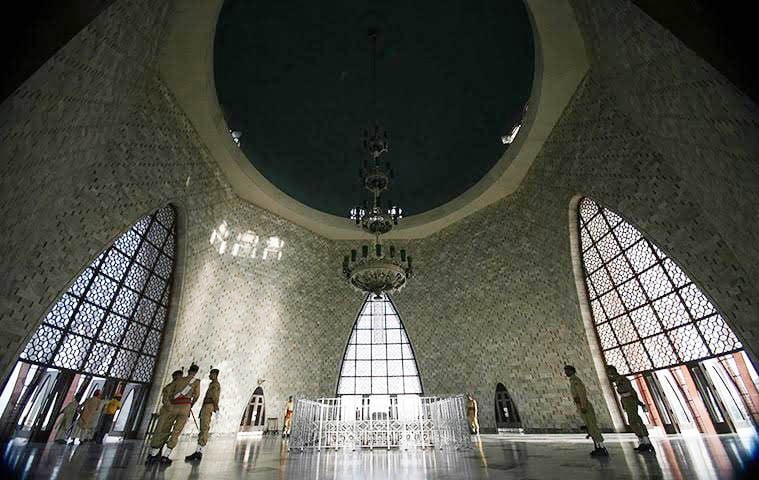
After being the crowning glory of Mazar-e-Quaid for four decades, a brand new chandelier is replacing the one presented earlier by China

We tend to rely on China for a lot of things -- from cleaning the city to constructing roads to railways to fixing the energy crisis. The two countries boast strong brotherly relations. A symbol of Pak-China friendship is a four-tier magnificent chandelier at the Quaid’s mausoleum right above the spot where the father of the nation rests in peace.
The 80-foot long, gold-plated chandelier installed in 1971 was a gift from China. After four decades of being the crowning glory of the mausoleum, it is being replaced by a brand new chandelier -- another gift from China. "The new chandelier will replicate the old design will cost Rs200 million," says Muhammad Arif, Resident Engineer, Mazar-e-Quaid.
A two-member team from Pakistan will visit China this month, after which the new chandelier will be transported to Karachi and fixed inside the mausoleum -- possibly by the end of this year.
"The need to replace the chandelier arose when several of its crystal strings were broken and its brass handles corroded," explains Arif.
As China had initially gifted the chandelier, it was thought necessary to take them on board when the decision came to repair it. After several visits by Chinese engineers and designers, China volunteered to replace the chandelier.
In July, Irfan Siddiqui, Adviser to the prime minister on National History and Literary Heritage and Sun Weidong, ambassador of China to Pakistan, signed the 13-page agreement at the Ministry of National History and Literary Heritage in Islamabad, reports state media.
At the ceremony, the Chinese Ambassador to Pakistan Sun Weidong said, "We look forward to working closely with Pakistan in all these fields with consensus. We want to push forward Pakistan-China relations to new heights."
"In 2012, upon the request of Pakistan, China agreed to give maintenance and also replicate and renew the chandelier after more than four decades," he reportedly said. He added that the chandelier was an icon of friendship between Pakistan and China.
However, heritage lovers claim that replacing the chandelier is like losing a piece of history. "One should conserve national monuments rather than replacing them," says architect Yasmin Lari. "The chandelier signified a moment in history -- the deep friendship that Pakistan enjoyed with China. It was magnificent."
She laments Pakistan does not conserve its national sites. "You don’t follow good ‘housekeeping’ practices. National heritage sites are not cleaned or repaired when the need arises. If repair and maintenance is done regularly, one does not need to replace an artefact."
Lari claims the management should have found out why the brass is eroding. "Is it because of the wind? How can it be saved from wind damage? These are questions which need to be addressed."
The state has often failed to protect its national monuments. A case in point is the litter strewn Pakistan Monument in Islamabad, or the archeological ruins of Mohenjo Daro which scream of negligence.